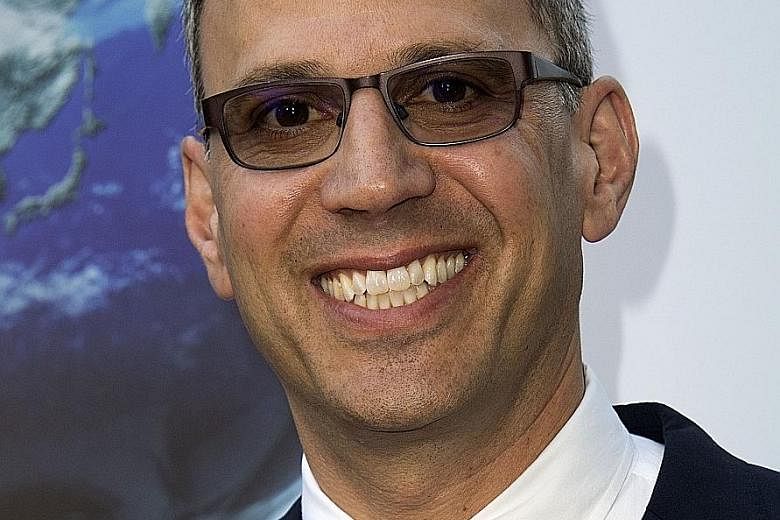The global warming documentary An Inconvenient Sequel: Truth To Power comes out at a time when the divide between right and left in the United States seems to be at its widest.
US President Donald Trump has declared climate change to be a hoax created by China to hobble American industry. Earlier this year, his administration pulled the country out of climate talks in Paris.
The documentary's co-director, Jon Shenk, 48, thinks that the gulf between liberals and conservatives is not as vast as it appears.
"We have a president who seems to be in denial about the climate crisis. But there are many Republicans who have flipped on this issue. They know that economically, it's smart to move to sustainable energy," he tells The Straits Times on the telephone from his office in San Francisco.
"Moving into the future, there is going (to be) less politics around climate. More Americans believe in man-made climate change than they don't, so it's going to be untenable to disagree with the majority," he says.
Fossil fuel corporations have "polluted the conversation" about climate in the last two decades and President Trump is a remnant of that influence, one that will fade with time, he believes.
Just as Big Tobacco lost the fight against medical science despite years of anti-science lobbying, oil companies will eventually have to own up to the truth about greenhouse gases, says Shenk.
His movie is a follow-up to An Inconvenient Truth (2006), directed by Davis Guggenheim. Mainly a presentation by former US vice-president Al Gore, warning audiences about climate change, the first film was a surprise boxoffice hit that won two Oscars, for Best Documentary and Best Original Song (I Need To Wake Up by Melissa Etheridge).
Directors Shenk and Bonni Cohen, 51, were picked to helm the sequel mainly because of their earlier film, The Island President (2011). The film tracks former Maldives president Mohamed Nasheed as he fights the climate crisis that would drown his low-lying island nation.
Shenk says he and Cohen thought the same biographical, fly-on-the- wall approach would work with Mr Gore.
"Bonni and I are really interested in character-based films. We thought, 'Why don't we follow Al around and show what goes into his everyday effort to move the needle on this crisis?'" he says.
In the film, the politician-turned- climate activist meets scientists and hurricane survivors. He uses his influence behind the scenes at last year's Paris climate talks.
Despite the acrimonious political mood in the US, Shenk says the film has been well-received at home. Viewers have taken well to its depiction of Mr Gore, who served with former president Bill Clinton and lost the 2000 presidential race to Mr George W. Bush.
Shenk thinks the film shows Mr Gore to be a committed, sincere climate activist, willing to share his passion with anyone, regardless of political leaning.
"He just wants to make progress on the issue. In the film, you see him meeting a conservative Republican mayor in the heart of oil country in Texas, who is converting his town to clean energy.
"It's exciting for people to discover that there is hope. There is an answer to the energy problem that we face."



